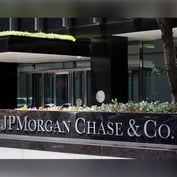What You Need to Know
- Investor Optimism Index dipped from +42 in Q4 to +26 in Q1 but was +101 for Black investors.
- The greater optimism among Black investors likely reflects the change in political leadership in Washington.
- Investors' overall outlook for achieving their financial goals changed little.
U.S. investors’ optimism dipped in the first quarter of 2021, but their outlooks for achieving key financial goals was little changed, according to the latest Wells Fargo/Gallup Investor and Retirement Optimism Index.
The index fell from +42 in the fourth quarter to +26 in the first quarter, due to less optimism about household income, the job and stock markets, and economic growth, according to the survey of more than 1,500 Americans that underpins the index.
But optimism among Black investors was much higher — +101 — reflecting greater optimism about economic growth and the stock market. Wells Fargo attributed that greater optimism to the political change in Washington, noting that the index score for Democrats was +136, compared with -84 for Republicans and -34 for independents, and that 70% of the Black investors in the survey identified as Democrats, compared with 44% of investors overall.
In addition, distribution of coronavirus vaccines in the first quarter of 2021 contributed to the outsize optimism of Black investors because the virus has had “disproportionate impact” on the Black community, explained Dave Dawkins, director of diverse client segments at Wells Fargo Advisors.
The death rate for Black Americans from COVID-19 is almost twice that of white Americans, according to the Centers for Disease Control and Prevention (CDC).
The Wells Fargo/Gallup survey included an “oversample” of Black Americans in order to yield a “robust analysis” of the views of Black investors. Among its findings: 17% of Black investors said their current income equals their expenses and 10% reported drawing on savings or borrowing to meet their expenses. Still, 70% reported they have been able to save a little or a lot.









 March 30, 2021 at 04:00 PM
March 30, 2021 at 04:00 PM












